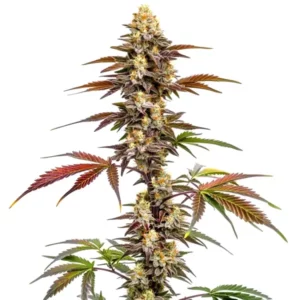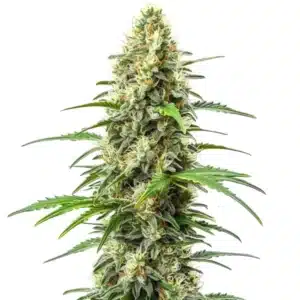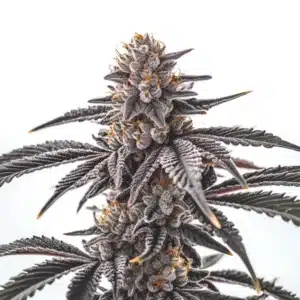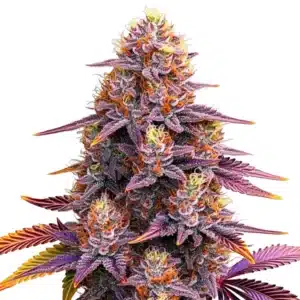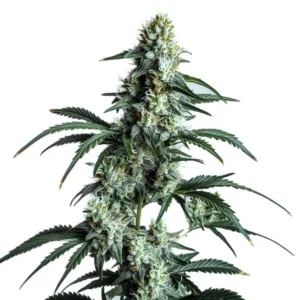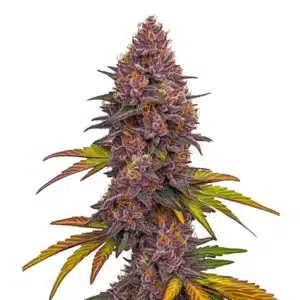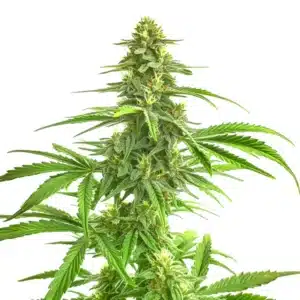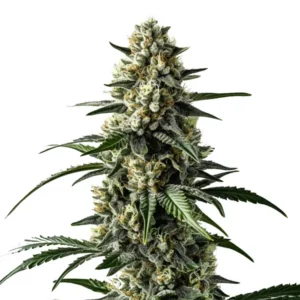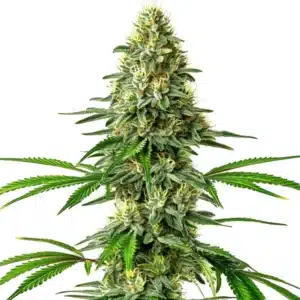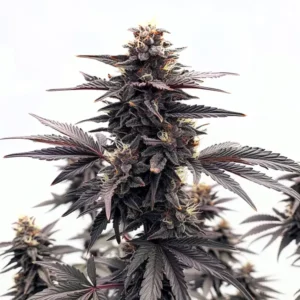
Does CBD Help with Allergies?
Are you a cannabis enthusiast who wonders, “does cbd help with allergies?” You’re not alone. Many people are turning to natural remedies to alleviate their allergy symptoms, and CBD has been gaining attention in this area. It’s an increasingly popular choice for those seeking a natural, non-pharmaceutical solution.
CBD, short for cannabidiol, is a compound found in the cannabis plant. Unlike THC, another well-known compound, CBD doesn’t have psychoactive effects, meaning it won’t get you high. Instead, it’s known for its potential therapeutic benefits, one of which might include allergy relief.
Recommended Strains
CBD Mango (1:1)
|
|
CBD | 8% – 10% (Low) |
|
|
Type | CBD Feminized |
|
|
Yield | High |
|
|
Phenotype | 40% Indica / 60% Sativa |
Critical x Somango
|
|
THC | 16% - 20% (Medium) |
|
|
Type | Feminized |
|
|
Yield | High |
|
|
Phenotype | 60% Indica / 40% Sativa |
While research on CBD’s effects on allergies is still emerging, early findings suggest it might help manage symptoms. So, let’s delve into the topic and see how CBD might provide some relief from common allergy symptoms.
If you’re someone who often suffers from allergies and is tired of relying on over-the-counter medications, you might find yourself asking “does cbd help with allergies?” With the increasing availability of CBD products and the growing body of research supporting its therapeutic potential, it’s worth considering as a natural alternative.
Does CBD Oil Help with Seasonal Allergies?
Seasonal allergies can make you miserable, with symptoms like sneezing, itchy eyes, and a runny nose. One question many people ask is, “does cbd oil help with seasonal allergies?” Studies suggest CBD oil might help by reducing inflammation and acting as a natural antihistamine.
When we come into contact with allergens, our bodies produce histamines. These chemicals trigger symptoms like sneezing and itching. CBD oil might help reduce these symptoms by blocking the release of histamines.
The question “does cbd oil help with seasonal allergies” is one that is becoming more common as people look for natural remedies. CBD oil could potentially offer a solution by helping to manage the body’s histamine response, thereby reducing the severity of allergy symptoms. It can be used as a supplement to your regular allergy medication or as a standalone remedy, depending on the severity of your allergies.
As the climate changes and allergy seasons get longer, the question “does cbd oil help with seasonal allergies” is increasingly relevant. If you’re tired of relying on antihistamines that make you drowsy or don’t fully alleviate your symptoms, CBD oil could be worth exploring. But remember, it’s crucial to consult with a healthcare professional before adding CBD oil to your allergy management routine.
Promos & Deals
Can CBD Products Reduce Allergy Symptoms?
So, can CBD products reduce allergy symptoms? It’s possible. The key is CBD’s potential anti-inflammatory properties. Inflammation is a common response to allergens. By reducing inflammation, CBD might help alleviate symptoms like nasal congestion and skin rashes.
But remember, not all CBD products are created equal. High-quality options like those from Blimburn Seeds are a must. Their strains, such as Wombat, Mango, and Santa Muerte, are rich in CBD and may potentially help with allergies.
When it comes to the question “can cbd products reduce allergy symptoms”, the answer seems to be a promising yes. However, it’s important to remember that each individual may respond differently to CBD. While some people might experience significant relief from their allergy symptoms, others might notice a more subtle effect. It’s all about finding the right product and dosage that works for you.
One of the benefits of using CBD products for allergies is their versatility. Whether you prefer oils, capsules, or topical creams, there’s a CBD product out there that can potentially help with your allergy symptoms. Remember, always choose high-quality CBD products from reputable brands to ensure you’re getting the most effective product.

Effectiveness of CBD in Treating Allergies
Now, let’s talk about the effectiveness of CBD in treating allergies. While research is ongoing, initial findings are promising. Studies suggest CBD might help reduce allergy symptoms by modulating the immune system’s response to allergens.
It’s important to note that everyone’s body is different, and what works for one person might not work for another. Always consult with a healthcare professional before starting any new treatment regimen.
The effectiveness of CBD in treating allergies is a topic of ongoing research. Initial studies suggest that CBD may help suppress the immune response that triggers allergy symptoms. This could mean less sneezing, itching, and congestion when you’re exposed to allergens.
However, it’s important to remember that the effectiveness of CBD in treating allergies can vary from person to person. Factors such as your overall health, the severity of your allergies, and the quality of the CBD product you’re using can all influence how well it works for you. As always, consulting with a healthcare professional is the best course of action before starting any new treatment.
CBD Oil for Allergy Relief Effectiveness
As for the CBD oil for allergy relief effectiveness, it might come down to how you use it. Sublingual application, where you place the oil under your tongue, is a popular method. This allows the CBD to enter your bloodstream quicker and might provide faster relief.
Again, it’s a good idea to consult with a healthcare professional before starting a new treatment. They can provide guidance on the best way to use CBD oil for your particular situation.
When it comes to CBD oil for allergy relief effectiveness, it’s worth noting that CBD oil can also be incorporated into your daily routine in other ways. You can add it to your food or drinks, or even apply it topically. The method of use may influence the effectiveness of the CBD, so it’s worth experimenting with different methods to see what works best for you.
Remember, when considering CBD oil for allergy relief effectiveness, consistency is crucial. It might take some time for the CBD to build up in your system and start alleviating your allergy symptoms. So don’t be discouraged if you don’t notice an immediate difference. Give it some time and monitor your symptoms carefully.

How Does CBD Oil Help with Allergies?
So, how does CBD oil help with allergies? It’s thought to work by influencing the endocannabinoid system (ECS). This system helps regulate various functions in the body, including immune responses. By interacting with the ECS, CBD might help reduce the immune system’s overreaction to allergens.
Remember, more research is needed to fully understand how CBD works for allergies. But early findings suggest it might offer some potential benefits.
The question “how does CBD oil help with allergies” can be answered by looking at the role of the endocannabinoid system (ECS) in the body. The ECS plays a critical role in regulating various bodily functions, including immune response. By interacting with the ECS, CBD may be able to moderate the body’s response to allergens, thereby reducing allergy symptoms.
It’s important to note that while we’re starting to understand how does CBD oil help with allergies, much of the research is still in its early stages. However, the possibility of a natural, non-addictive substance that can help manage allergy symptoms is certainly exciting. As always, consult with a healthcare professional before starting any new treatment regimen.
FAQ
Can I use CBD oil for pet allergies?
Yes, some pet owners use CBD oil to help manage their pet’s allergy symptoms. Like humans, animals have an endocannabinoid system that CBD can interact with. However, it’s essential to consult with a vet before starting any new treatment for your pet.
Also, make sure to use a pet-friendly CBD product. Some CBD products for humans contain ingredients that can be harmful to pets.
Using CBD oil for pet allergies can potentially provide relief, especially during seasons when allergens are high. Similar to humans, pets can experience sneezing, skin rashes, and discomfort due to allergies. CBD oil could potentially help alleviate these symptoms by reducing inflammation and acting as a natural antihistamine.
It’s vital to ensure that the CBD oil you’re using for your pet is safe and free from any harmful additives. Always choose CBD products specifically designed for pets, as these are carefully formulated to be safe for animal consumption. And remember, always consult with a vet before introducing any new treatment into your pet’s regimen.
What are the side effects of using CBD for allergies?
While CBD is generally well-tolerated, it can have some side effects. These might include dry mouth, diarrhea, and changes in appetite. It might also interact with certain medications. It’s always a good idea to talk to a healthcare professional before starting CBD.
Also, make sure to start with a low dose and gradually increase it. This can help your body adjust to the CBD and minimize potential side effects.
It’s also worth noting that while CBD is generally considered safe, it’s not for everyone. Some people might experience side effects when using CBD for allergies, including changes in mood, dizziness, or even an allergic reaction to the CBD itself. Always start with a low dose to see how your body reacts, and discontinue use if you experience any adverse effects.
It’s also important to remember that CBD can interact with other medications you’re taking, so it’s crucial to talk with your doctor before adding CBD to your allergy treatment routine. They can help you understand any potential risks and guide you on the best way to use CBD for your allergies.
How often should I use CBD for allergies?
How often you should use CBD for allergies depends on several factors, including the severity of your symptoms and how your body reacts to CBD. Some people might find relief with a single daily dose, while others might need to use CBD multiple times a day.
Again, it’s a good idea to consult with a healthcare professional. They can provide guidance on the best dosage and frequency for your situation.
The frequency with which you should use CBD for allergies can also depend on the type of CBD product you’re using. For example, CBD oil can be used daily and even multiple times a day, while a CBD-infused topical might be used as needed for localized relief. It’s important to follow the product’s instructions and consult with a healthcare professional to determine the best regimen for you.
And remember, consistency is key when it comes to using CBD for allergies. It might take a few weeks of regular use before you notice a difference in your symptoms. So don’t get discouraged if you don’t see immediate results. Stick with it, and keep your healthcare provider informed of your progress.
Can CBD help with food allergies?
While more research is needed, initial findings suggest CBD might help with food allergies. It’s thought to work by reducing inflammation and modulating the immune system’s response to allergens. However, always consult with a healthcare professional before starting any new treatment.
Also, remember that avoiding the allergenic food is the most effective way to manage food allergies. CBD should not be used as a replacement for this.
When it comes to food allergies, the question “can CBD help” is still under investigation. However, given its potential anti-inflammatory properties, CBD might help reduce the discomfort associated with food allergies. It’s crucial to remember that CBD is not a cure for food allergies, and the allergenic food should still be avoided.
It’s also important to note that while CBD might provide some relief from the symptoms of food allergies, it should not replace any prescribed medication or dietary restrictions. Always consult with a healthcare professional before using CBD as a supplement to your existing food allergy management plan.
Can I grow my own CBD-rich cannabis for allergies?
Yes, growing your own CBD-rich cannabis can be a cost-effective way to access this potential natural remedy. High-quality seeds from reputable sources like Blimburn Seeds are a good place to start.
Strains like Wombat, Mango, and Santa Muerte are rich in CBD and might potentially help with allergies. Remember, cultivating cannabis is subject to local laws and regulations. Always make sure to comply with these.
By growing your own CBD-rich cannabis, you have the added advantage of knowing exactly where your CBD is coming from. You can control the growing conditions and ensure that no harmful chemicals are used. This can be particularly beneficial for allergy sufferers who might be sensitive to certain additives or pesticides.
Remember, growing your own cannabis requires some knowledge and care. You’ll need to take into consideration factors like the optimal light and water conditions for your plants, as well as pest management. But with some time and dedication, you can cultivate your own source of potential allergy relief.


